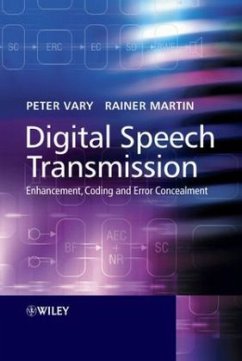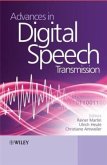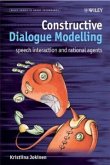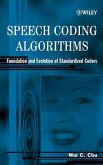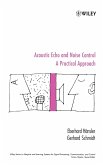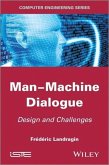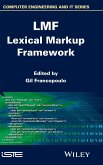Robust speech transmission is primarily concerned with issues of spoken language and--due to the progress made in signal processing technology i.e. with the availablilty of powerful, monolithically integrated signal processors--speech signal transmission has developed an important practical significance. This book emphasizes issues of speech coding (data compression), the improvement of distorted speech signals, speech and speaker recognition, and speech synthesis (conversion of text into spoken language). One main area of application which pushes this development ahead is that of digital mobile radio communication.
The enormous advances in digital signal processing (DSP) technology have contributed to the wide dissemination and success of speech communication devices - be it GSM and UMTS mobile telephones, digital hearing aids, or human-machine interfaces. Digital speech transmission techniques play an important role in these applications, all the more because high quality speech transmission remains essential in all current and next generation communication networks.
Enhancement, coding and error concealment techniques improve the transmitted speech signal at all stages of the transmission chain, from the acoustic front-end to the sound reproduction at the receiver. Advanced speech processing algorithms help to mitigate a number of physical and technological limitations such as background noise, bandwidth restrictions, shortage of radio frequencies, and transmission errors.
Digital Speech Transmission provides a single-source, comprehensive guide to the fundamental issues, algorithms, standards, and trends in speech signal processing and speech communication technology. The authors give a solid, accessible overview of
_ fundamentals of speech signal processing
_ speech coding, including new speech coders for GSM and UMTS
_ error concealment by soft decoding
_ artificial bandwidth extension of speech signals
_ single and multi-channel noise reduction
_ acoustic echo cancellation
This text is an invaluable resource for engineers, researchers, academics, and graduate students in the areas of communications, electrical engineering, and information technology.
The enormous advances in digital signal processing (DSP) technology have contributed to the wide dissemination and success of speech communication devices - be it GSM and UMTS mobile telephones, digital hearing aids, or human-machine interfaces. Digital speech transmission techniques play an important role in these applications, all the more because high quality speech transmission remains essential in all current and next generation communication networks.
Enhancement, coding and error concealment techniques improve the transmitted speech signal at all stages of the transmission chain, from the acoustic front-end to the sound reproduction at the receiver. Advanced speech processing algorithms help to mitigate a number of physical and technological limitations such as background noise, bandwidth restrictions, shortage of radio frequencies, and transmission errors.
Digital Speech Transmission provides a single-source, comprehensive guide to the fundamental issues, algorithms, standards, and trends in speech signal processing and speech communication technology. The authors give a solid, accessible overview of
_ fundamentals of speech signal processing
_ speech coding, including new speech coders for GSM and UMTS
_ error concealment by soft decoding
_ artificial bandwidth extension of speech signals
_ single and multi-channel noise reduction
_ acoustic echo cancellation
This text is an invaluable resource for engineers, researchers, academics, and graduate students in the areas of communications, electrical engineering, and information technology.

